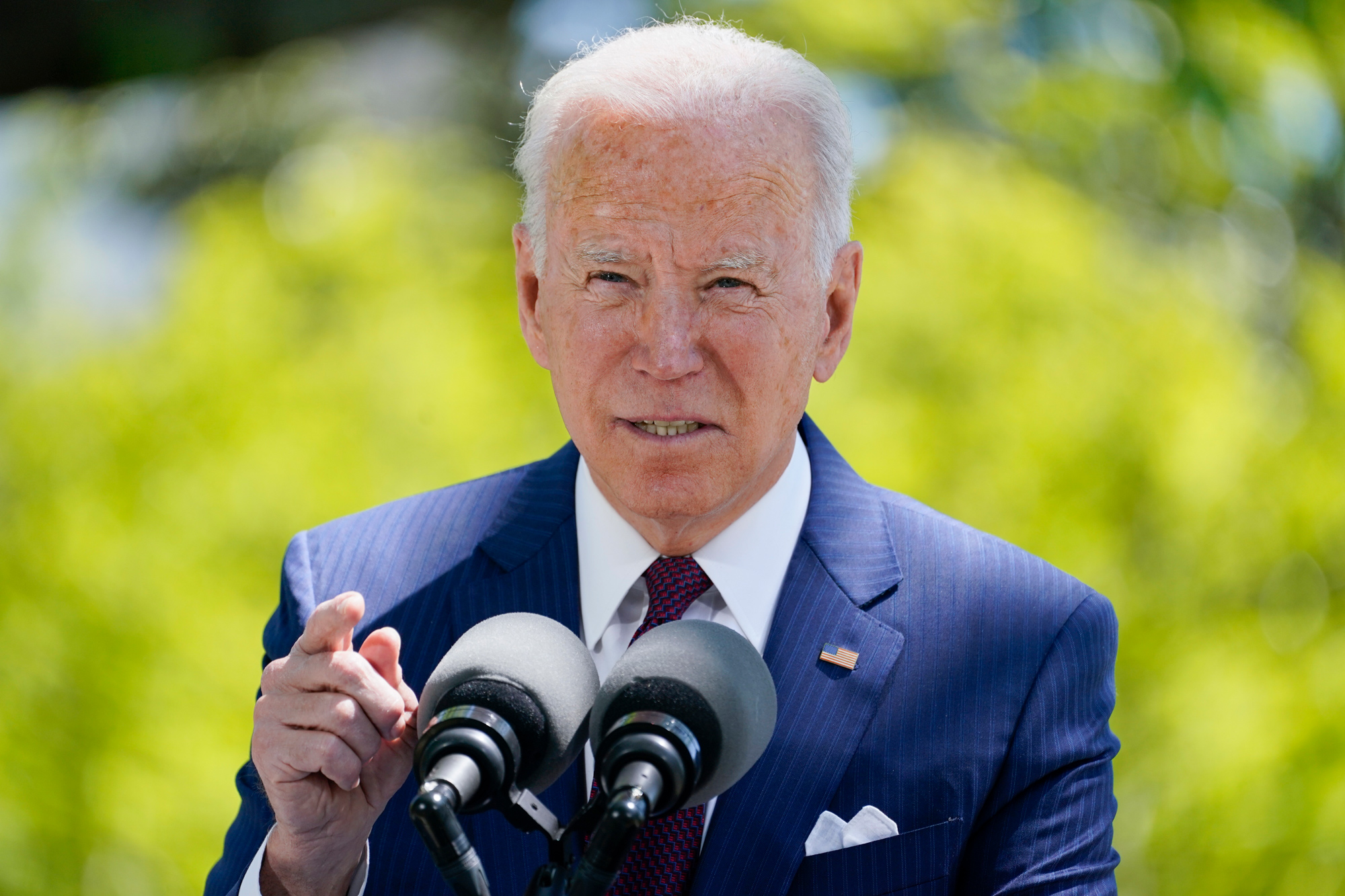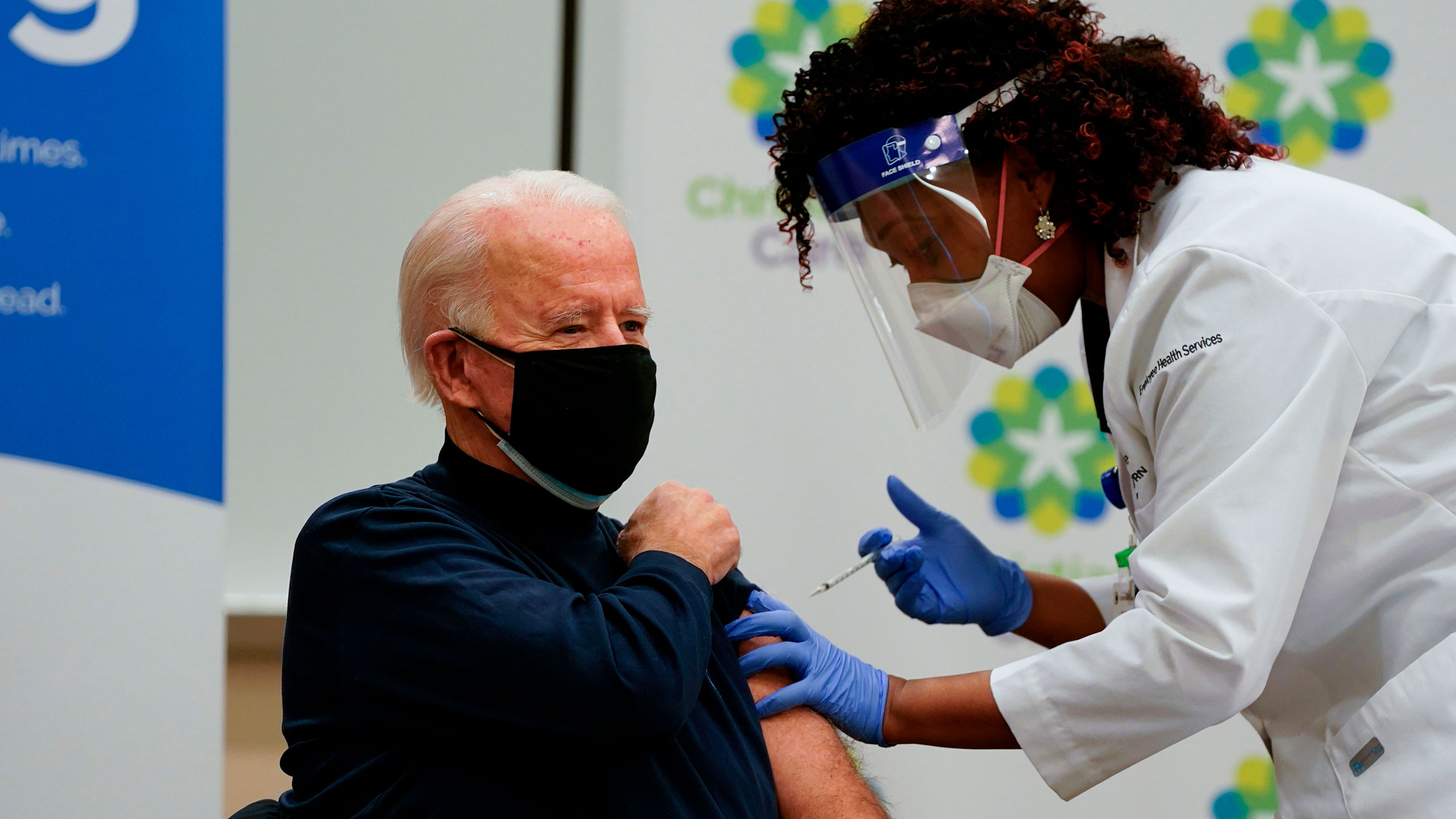Biden’s COVID-19 Response

Joe biden covid – President Biden’s response to the COVID-19 pandemic has been a key focus of his administration since taking office in January 2021. Biden has taken a number of steps to address the pandemic, including implementing a national vaccination campaign, providing economic stimulus measures, and issuing public health guidelines.
Vaccination Campaign
One of Biden’s top priorities has been to increase the number of Americans who are vaccinated against COVID-19. In his first month in office, Biden set a goal of administering 100 million vaccine doses within his first 100 days in office. This goal was achieved in March 2021, and Biden has since set a new goal of vaccinating 70% of American adults by July 4, 2021.
The Biden administration has taken a number of steps to increase the availability and accessibility of vaccines. These steps include:
- Increasing the number of vaccination sites across the country
- Partnering with pharmacies and other retail outlets to offer vaccinations
- Providing financial assistance to states and localities to support vaccination efforts
As a result of these efforts, the number of Americans who are vaccinated against COVID-19 has increased significantly. As of June 2021, over 60% of American adults have received at least one dose of the vaccine, and over 50% are fully vaccinated.
Nah, jadi si Joe Biden tuh, emang lagi gencar-gencarnya ngomongin soal Covid-19. Ya iyalah, namanya juga Presiden Amerika. Tapi yang menarik itu, kasus Covid-19 di California tuh lagi tinggi banget! Kalian bisa cek deh di california covid cases. Nah, balik lagi ke Joe Biden, dia tuh ngebahas juga soal vaksinasi dan segala macem.
Ya gitu deh, pusing pala barbie ngikutin berita Covid-19.
Economic Stimulus Measures
In addition to the vaccination campaign, the Biden administration has also taken a number of steps to provide economic stimulus to help the country recover from the economic effects of the pandemic. These steps include:
- Passing the American Rescue Plan, a $1.9 trillion economic stimulus package that includes direct payments to Americans, extended unemployment benefits, and funding for state and local governments
- Providing financial assistance to small businesses
- Investing in infrastructure projects
These measures have helped to provide much-needed relief to American families and businesses. The American Rescue Plan, in particular, has been credited with helping to reduce poverty and hunger in the United States.
Joe Biden has made it clear that fighting COVID-19 is a top priority for his administration. He has pledged to increase testing, improve vaccine distribution, and provide economic relief to those affected by the pandemic. One of the key figures in Biden’s COVID-19 response team is Peter Navarro , a former trade adviser to President Trump.
Navarro has been a vocal critic of China’s handling of the pandemic, and he has advocated for a more aggressive approach to containing the virus. Biden’s decision to include Navarro in his COVID-19 response team suggests that he is taking a serious approach to the pandemic and is willing to consider a range of perspectives in developing his policies.
Public Health Guidelines
The Biden administration has also issued a number of public health guidelines to help prevent the spread of COVID-19. These guidelines include:
- Requiring masks to be worn in federal buildings and on public transportation
- Encouraging social distancing
- Recommending that people get vaccinated
These guidelines have been controversial, but they have helped to slow the spread of the virus. As a result of these measures, the number of COVID-19 cases and deaths in the United States has declined significantly since Biden took office.
Effectiveness of Biden’s Response
Biden’s response to the COVID-19 pandemic has been generally praised by public health experts. The vaccination campaign, economic stimulus measures, and public health guidelines have all helped to slow the spread of the virus and save lives.
However, there have been some criticisms of Biden’s response. Some critics have argued that the Biden administration has not done enough to address the pandemic, while others have argued that the administration’s policies have been too restrictive.
Overall, Biden’s response to the COVID-19 pandemic has been a mixed bag. The administration has taken some positive steps to address the pandemic, but there have also been some criticisms of the administration’s response.
Political and Social Impact of COVID-19 under Biden: Joe Biden Covid
The COVID-19 pandemic has had a profound political and social impact on the United States under President Biden’s leadership. Biden’s handling of the pandemic has been met with both praise and criticism, and its effects have been felt across the country.
Public Trust and Electoral Outcomes
The pandemic has had a significant impact on public trust in government. A 2022 poll by the Pew Research Center found that only 38% of Americans approve of Biden’s handling of the pandemic, while 59% disapprove. This is a significant decline from the 63% approval rating Biden had on this issue in January 2021.
The pandemic has also had an impact on electoral outcomes. In the 2022 midterm elections, Republicans gained control of the House of Representatives, while Democrats maintained control of the Senate. Some analysts believe that the pandemic was a factor in the Republican gains, as voters were dissatisfied with Biden’s handling of the issue.
Healthcare Systems and Businesses
The pandemic has also had a significant impact on healthcare systems and businesses. The pandemic has caused a surge in hospitalizations and deaths, and it has also led to disruptions in the supply chain. These disruptions have caused shortages of essential goods and services, and they have also led to increased costs for businesses.
Vulnerable Populations
The pandemic has also had a disproportionate impact on vulnerable populations. People of color, low-income individuals, and people with disabilities have been more likely to be infected with COVID-19, and they have also been more likely to die from the disease. The pandemic has also exacerbated existing inequalities in healthcare and economic security.
Public Health Messaging and Communication, Joe biden covid
The pandemic has also highlighted the importance of public health messaging and communication. The Biden administration has used a variety of channels to communicate with the public about the pandemic, including social media, press conferences, and public service announcements. The administration has also worked with state and local governments to implement public health measures, such as mask mandates and social distancing.
International Response to COVID-19 under Biden

President Biden has taken a multilateral approach to the COVID-19 pandemic, emphasizing international cooperation and diplomacy. In contrast to his predecessor, who often downplayed the severity of the virus and withdrew the US from the World Health Organization (WHO), Biden has rejoined the WHO and pledged to work with other countries to combat the pandemic.
Biden’s Approach to the Pandemic
Biden has taken several steps to address the pandemic internationally. He has committed to providing $4 billion to COVAX, a global initiative to distribute vaccines to developing countries. He has also lifted travel restrictions on travelers from certain countries and has supported the waiver of intellectual property rights on COVID-19 vaccines, which would allow developing countries to produce their own vaccines.
The Role of International Cooperation and Diplomacy
International cooperation and diplomacy are essential to addressing the global health crisis. The pandemic has shown that no country can go it alone. Countries need to work together to share information, coordinate their response, and ensure that everyone has access to vaccines and other essential resources.
Challenges and Opportunities for Global Collaboration
There are a number of challenges to global collaboration in combating COVID-19. One challenge is the lack of trust between countries. Some countries are reluctant to share information or resources with others. Another challenge is the rise of nationalism and populism, which can make it difficult for countries to work together.
Despite these challenges, there are also a number of opportunities for global collaboration. The pandemic has shown that countries are interdependent and that they need to work together to solve global problems. The pandemic has also created a sense of urgency that can help to overcome some of the challenges to cooperation.